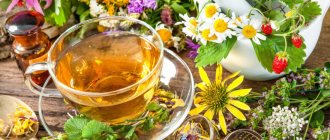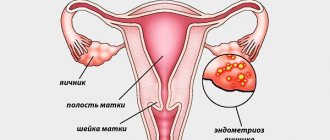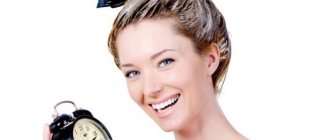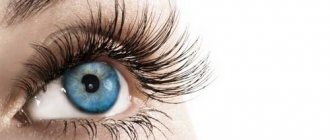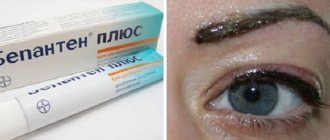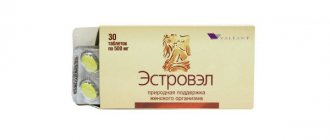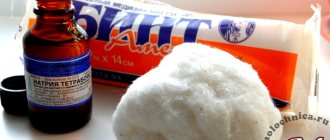With the onset of menopause, a woman’s body begins to undergo various changes associated with changes in hormonal levels, which affect the cardiovascular, endocrine, genitourinary and nervous systems of the body. All changes are natural processes that occur during menopause and indicate approaching old age. Hormonal disruptions in the body also affect a woman’s hair during menopause, accompanied by hair loss, which causes great concern for its owner. There can be a huge number of reasons for this phenomenon.
Why hair began to fall out during menopause
The processes that occur in the female body during menopause are connected with each other. During hormonal changes, the level of estrogen, which is responsible for healthy nails and skin, hair volume and growth, rapidly decreases.
Testosterone, a male hormone that is found in small quantities in the female body, begins to dominate the substance, and then hair growth and nutrition are disrupted.
Testosterone levels are directly related to male pattern baldness, so it has a similar effect when it is in excess in a woman.
During menopause, the fair sex experiences frequent mood swings and emotional stress. This stressful condition also has a detrimental effect on the hairstyle, as the normal blood supply to the top of the head deteriorates and the hair follicles do not receive the necessary nutrients.
Traditional methods
What to do if hair falls out during menopause? You don't have to resort to medication if you want to restore thickness to your hair. If they are just starting to disappear, then some folk methods will help you.
Aloe helps a lot. It contains vitamins B, C, E, A, and beta-carotene. All these elements promote regeneration and moisturize.
You can make a tincture from aloe, or you can rub pure juice into the scalp. There are masks with aloe based on honey, castor oil and so on. Hair loss during menopause will stop.
Another way is arnica inflorescences. She removes dandruff. Can be added to tinctures and oils if hair falls out during menopause. It helps in combination with mustard masks, but they must be used very carefully.
Sage is also popular. The leaves of the plant contain vitamins, organic acids and antioxidants. Greasiness and itching, if they bother you, will also go away after using sage. You can use oil, tinctures and decoctions.
Nettle, chamomile, primrose, onion, lemon, egg yolk, and essential oils also help.
Menopause and hair loss are related, but the symptom can be successfully treated.
Stages of hair growth.
How to stop hair loss
Menopause is not a disease, so there is no specific treatment for loss of curl volume. It is unlikely that you will be able to restore the original thickness, but it is quite possible to stop hair loss and preserve your hair.
First of all, you should turn to the medicinal method, that is, taking hormonal drugs, and supplement them with folk recipes. Only comprehensive measures, a healthy lifestyle and regular care can help eliminate the problem.
Drug treatment
Taking synthetic hormones will help cope with hair loss during menopause. The most commonly prescribed drugs are:
- Metformin. It is used for diabetes, but is also effective in combating hair loss during menopause.
- Minoxidil. The drug is prescribed to dilate blood vessels and helps strengthen the follicles.
- Steroid drugs with female hormone. They allow you to compensate for the lack of estrogen in the body and restore the condition of your hair.
Hormonal medications have many contraindications, so only a doctor can prescribe the correct dosage in accordance with the patient’s individual parameters.
Complex of vitamins depending on age
The best vitamins for women over 30
Vitamins for women (the best will be listed below) after 30 are designed to help the functioning of reproductive function and maintain beauty. A woman at this age has not yet begun to grow old, but great importance is paid to maintaining natural beauty and health.
The basis of beauty after the age of 30 is the proper functioning of the ovaries, which requires vitamins E, B3, B6, B9, B12, C.
Closer to forty years, after 35, the aging process begins. This does not yet manifest itself externally, but changes inside the body begin to occur. The main reason is the beginning of a decrease in the functioning of the ovaries, which produce hormones responsible for beauty. A complex of vitamins with antioxidant activity is designed to support ovarian function.
These vitamins are taken in a monthly course:
- “Vitrum” after 30 is called “Beauty Elite”. Vitamins are presented for different age categories. Therefore, after a certain time, your favorite vitamins can be replaced with another complex. Consists of vitamins B, E, D. Take 1 tablet per day.
- "Alphabet" . The advantage of this drug lies in the vitamins selected for compatibility. Since there are vitamins that contradict each other, in this complex they are divided into different tablets. Three tables are accepted. different colors per day.
- “Lora” contains hyaluronic acid, wild yam (extract), vitamins C, E. 1 tablet per day.
- "Elevit Pronatal" is designed for pregnant and lactating women, as well as those who are deciding to become pregnant. Contains vitamin A, the recommended amount of folic acid, B1, B2, B12, C, D. 1 tablet per day.
- “Duovit” consists of 12 vitamins and 15 microelements that can slow down the aging process and initiate regeneration processes. Take 1 red and 1 blue tablet once a day.
The best vitamins for women over 40
Vitamins for women (the best are presented in the list below) after 40 years of age are designed to stop the active decline in ovarian function. At this age, the aging process begins to actively begin, since the ovaries produce less estrogen hormones. They are the ones who maintain youth and beauty.
Vitamins and complexes for women over 40 contain increased amounts of vitamins with antioxidant properties to normalize hormonal levels
It is impossible to stop this process, so beauty must be maintained by other methods. One of them is the use of vitamins that have antioxidant properties that normalize hormonal levels. The following are required: A, E, C, F, B12. Vitamins are taken in a course lasting 1 month.
Lifestyle adjustments
Using drug treatment and folk remedies, it is necessary to change some habits and diet, namely, it is recommended:
- spend more time in the fresh air;
- sleep at least eight hours a day;
- use vitamin complexes;
- engage in moderate physical activity;
- give up strict diets and follow a diet.
By adhering to simple rules, not only the appearance of your hair will improve, but also your complexion, as well as the general condition of your body.
Liquid
Water affects the degree of hydration and the condition of the hydrolipid layer. Physiologically, the amount of water contained in the body limited by the skin is 20%. This is why mineral and spring waters containing minerals are a very good source of water and minerals. Liquids should be consumed in the amount of 30-35 ml/kg body weight/day, including 1.5 liters in the form of water, preferably between meals. Other sources of fluids during the day may also include compotes, unsweetened juices, tea, Inca coffee, wheat coffee, organic coffee and soups.
We invite you to read: Chamomile healing properties for hair
What paints can be used during menopause?
When eliminating the problem of menopause, you need to avoid hair coloring, otherwise the treatment will not bring the desired results. If it is not possible to refuse this procedure, you need to replace it with a more gentle method.
The paint should not contain ammonia, and the percentage of hydrogen peroxide should not exceed 3%. Some mixtures contain vitamin complexes, which will help treat hair.
Another way out of the situation is to replace the paint with natural henna or basma. These herbs will correct the shade of your hair and help strengthen it.
Polyphenols
Polyphenols are the most abundant antioxidants in the human diet, and the largest and most studied class of polyphenols are flavonoids. This group contains: flavanones, flavanols, flavones and isoflavones, flavonols and anthocyanins. All of them play the role of “phytohormones”, growth regulators and inhibitors of many enzymatic reactions.
Flavonoids in the stratum corneum of the skin act as anti-radicals and antioxidants. In deeper parts of the skin, they modify enzyme activity and protect against the harmful properties of UV radiation. In corium, they affect the condition of blood vessels and stimulate microcirculation, which nourishes the hair. Indirectly, flavonoids increase the absorption of vitamin C from the diet and stimulate its action.
The flavonoids found in green tea have been shown to stimulate the growth of hair follicles by prolonging their anagen phase. However, in animal model studies, flavonoids found in 5α-reductase-inhibiting herbs were shown to promote faster hair regrowth.
Despite the fact that the largest amount of flavonoid compounds can be found in dark chocolate ({amp}gt; 70% cocoa), the main source of flavonoids in a woman's diet should be vegetables (onions, tomatoes, peppers, broccoli) and fruits (apples, berries, black currants, citrus fruits and grapes). Flavonoids can also be found in some grains, lentil seeds, spices and red wine, green tea, coffee, tea and cocoa.
The main classes of phytoestrogens (structurally and functionally similar to mammalian estrogens) found in the human diet are isoflavones (daidzein, genistein and glycitein), lignans (enterodiol and enterolactone). The main sources of isoflavones are soy and soy products, while the sources of lignans are grains, flaxseed and berries. These compounds delay menopause in women and reduce its effects.
Hair care during menopause
During the onset of menopause, you need to pay special attention to hair care so as not to provoke baldness. Simple rules should be followed:
- wash your hair no more than once every 2-3 days;
- use balm or conditioner;
- do not comb your hair unnecessarily;
- refuse tight headdress;
- minimize heat styling and use heat protectants every time;
- After washing, comb your hair when dry.
It is important to avoid stressful situations, as a woman’s emotional state affects her health and beauty.
Lifestyle
Women during menopause need to give up bad habits: smoking and drinking alcohol.
In addition, it is important to make adjustments to your lifestyle:
- Do not eat fatty and refined foods, fast food.
- Night sleep should last 8 hours.
- Exercise regularly.
- Take good care of your hair. Wash your hair no more often than every other day. Shampoos should be soft and contain hyaluronic acid. Use the hairdryer as little as possible.
Physical activity
While taking medications containing calcium, physical activity is simply necessary. The reason is that a sedentary lifestyle leads to the formation of crystals in a woman. They are concentrated in the kidneys. In addition, a properly selected set of exercises will help maintain the tone of the pelvic muscles, which will be an excellent prevention of prolapse and prolapse of the genital organs.
Effective and simple exercises that are especially important to perform during early menopause:
- Retract the anus and walk on tiptoes;
- Lie down and hold a small object with your feet;
- Raise your right and left legs alternately while lying down;
- Raise the pelvis and at the same time retract the anus;
- In a sitting position, raise your legs at the knees.
Nutrition
To keep your curls healthy and strong, you need to include the following foods in your diet:
- meat and fish, beans and legumes, dairy products, eggs (protein);
- organ meats (liver, kidneys), dark green leafy vegetables, white beans, chickpeas and lentils, cashews, raisins (iron);
- wholemeal bread (from rye, buckwheat flour, bran), potatoes, yeast (B vitamins);
- nuts, olive and vegetable oil, fatty sea fish, soybeans (essential fatty acids);
- avocado, vegetable oils, cereals (vitamin E);
- garlic, Brussels sprouts, mushrooms, tomatoes, seaweed (selenium).
